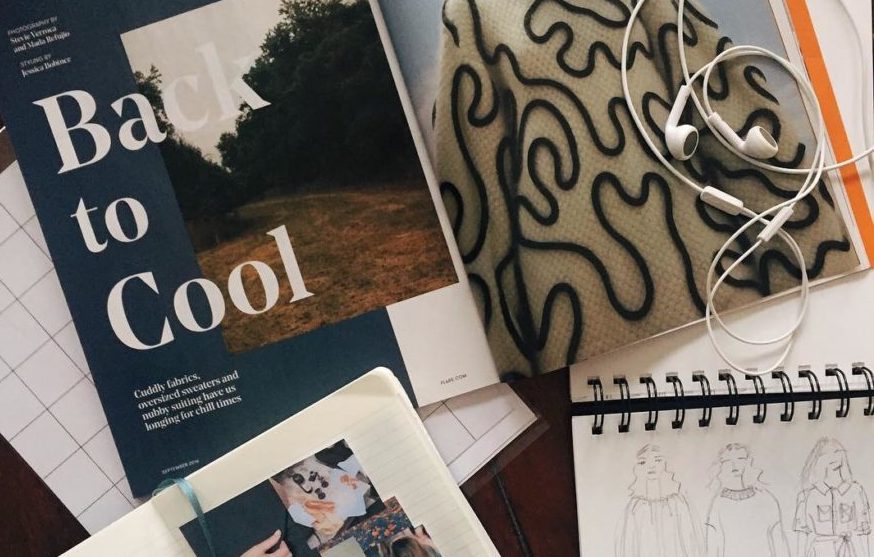The first time that I had college exams—finals to be exact—I remember feeling so overwhelmed and stressed that I had no idea where to start. Even though exam season can feel like a drag, they have a tendency to move by rather quickly, which makes it all even scarier. While I still have felt overwhelmed and stressed about finals, I now am able to pinpoint a set of steps that have helped get me prepared and relatively relaxed leading up to my finals. It’s important to keep things regulated in a way that keeps you focused, productive, and well-rested, but without boring yourself to death. Nothing is worse than when you feel like you have lost the ability to concentrate and the motivation to move forward, so keep reading to discover this college finals survival kit to help you master your exams when the going gets tough.
- Find a planning system that works best for you and use it: Any sort of planning system whether it be a calendar, a bullet journal, a planner, or even a simple sheet of paper helps you stay organized. It makes things far less stressful when you have a study plan on paper right in front of you. When lots of tasks are floating around in your head, it’s easy to forget some, especially in times of stress. Be sure to write down any due dates, exam times, and review sessions down to maximize the most out of your study period.
- Budget your time wisely: Similar to the previous point, planning ahead makes finals season a little bit more manageable. Three weeks before you have any sort of final, take time to sit down and organize what you are going to study each day leading up to your finals. I like to start planning three weeks before and then start studying two weeks before. Look at what you have learned for the semester and divide everything evenly, allotting time for the few days leading up to the exam date going through a final review. In creating manageable “chunks” of content, you will be able to learn information in more impactful, less stressful way.
- Organize all of your study materials by unit: Before I start studying, I always love to do what I call a “physical brain dump.” I take all the materials from a given semester class (i.e. handouts, notes, tests, quizzes, homework, papers, etc.) and I organize everything by unit. I make sure to separate each individual unit with a paperclip, so I have my own homemade study packet. It makes way simpler for studying because you can grab your single packet, your textbooks, and go. And besides—who wants to spend their allotted study session having to flip through tons of papers to find that random pop quiz from a few months ago?
- Start by reading over your notes and highlight the things you don’t know: A lot of the time, it’s easy to get caught up in wanting to memorize every little detail. The most important part of studying is figuring out what you don’t know and focusing on that instead. Go through the study packet you have created, re take your old tests and quizzes first without studying any information, and then make a note of what you didn’t know/got wrong. Then, go through all your notes and highlight the things you feel “iffy” about. From here, you can create a list of the things you don’t know. Out of a sea of information, this can help you see exactly what you need to spend your time understanding.
- Go through all your materials and create a master study guide: One of my favorite things to do during exams is rewrite my notes by creating my own master study guide.I go through all my notes, find the most important concepts and lessons of a given unit, and write it all out on a giant paper pad. To make this fun for myself, I love to get out any colorful pens and highlighters and create a bright, cheery study guide. It’s the perfect way to focus, while tricking myself into having fun studying with the added aspect of creativity.
- Attend any exam review sessions offered: Take advantage of any planned study opportunities your university offers! From TAs to professors, many offer class-wide review sessions. Budget time in your study schedule to attend these sessions, even if you don’t have questions or feel like you need to go. At these meetings, you could hear about something you didn’t know you needed to know or something you realized you didn’t understand correctly. And if your TA or your professors aren’t offering review sessions, don’t be afraid to ask for help or schedule a time to meet with them.
- Plan a group study session with classmates: You don’t have to be alone to study seriously. Studying with classmates not only will allow you to learn more information, but it will also make the studying process go by quicker. I find that studying with a group of people in my classes can be incredibly motivational, and sometimes so much fun that I forget that I’m doing something boring. Plus, you can use the chance to quiz each other and explain the concepts you’re studying out loud to ensure you understand them fully.
What study techniques are in your college finals survival kit? Let us know in the comments below!
Featured photo by @katherinebondy.

